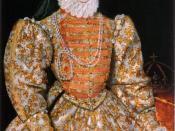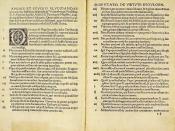The English Reformation: A Momentous Movement
I.Introduction
II.Causes of the Reformation
A. Corruption in the Church
B. The Renaissance and Humanism
III.Influential Reformists
A. Martin Luther
B. John Calvin
IV.Consequences of the Reformation
V.Counter-Reformation
A. Moral Reform of Clergy
B. Strengthening of Church
VI.Conclusion
Introduction
The Protestant Reformation of the sixteenth century is one of the most complex movements in European history since the fall of the Roman Empire. The Reformation truly ends the Middle Ages and begins a new era in the history of Western Civilization. The Reformation ended the religious unity of Europe and ushered in 150 years of religious warfare. By the time the conflicts had ended, the political and social geography in the west had fundamentally changed. The Reformation would have been revolutionary enough of itself, but it coincided in time with the opening of the Western Hemisphere to the Europeans and the development of firearms as effective field weapons.
It coincided, too, with the spread of Renaissance ideals from Italy and the first stirrings of the Scientific Revolution. Taken together, these developments transformed Europe.
Causes of the Reformation
Many bishops and abbots (especially in countries where they were also territorial princes) bore themselves as secular rulers rather than as servants of the Church. Many members of cathedral chapters and other beneficed ecclesiastics were chiefly concerned with their income and how to increase it, especially by uniting several prebends (even episcopal sees) in the hands of one person, who thus enjoyed a larger income and greater power. Luxury prevailed widely among the higher clergy, while the lower clergy were often oppressed. The scientific and ascetic training of the clergy left much to be desired, the moral standard of many being very low, and the practice of celibacy not everywhere observed. Not less serious was the condition...



The English Reformation
The author demonstrate and excellent use of citations.
0 out of 0 people found this comment useful.